Women and War: Power and Protection in the 21st Century
Kathleen Kuehnast, United States Institute of Peace
Photos | Transcript
Washington, DC—On July 29, 2011, Women's Foreign Policy Group held a brown-bag Author Series luncheon on "Women & War: Power and Protection in the 21st Century" with co-authors Kathleen Kuehnast and Chantal de Jonge Oudraat. Kuehnast is director of the Gender and Peacebuilding Center at the United States Institute of Peace (USIP), and de Jonge Oudraat directs USIP's Jennings Randolph Fellowship Program. They discussed UN Security Council Resolution 1325 and efforts to promote women's involvement in peacebuilding, security, education, and international decision-making.
De Jonge Oudraat approaches the topic of women and war from a security or "power" perspective. She feels that there has been greater awareness of the impact of war on women in recent years because of the shift towards intrastate conflict, a new focus on human security, and advocacy campaigns. Out of this increased consciousness came UN Security Council Resolution 1325. This resolution calls for both gender equalitythe need to involve women in the peace processand gender sensitivitya recognition that women experience conflict in a different way than men. De Jonge Oudraat feels that implementation of the resolution has been slow because the events of 9/11 caused many to view security from a strictly military perspective. However, the introduction of US military female engagement teams into Afghanistan has indicated a renewed interest in human security.
Kuehnast approaches the issue from a developmental and anthropological or "protection" perspective. Kuehnast feels Resolution 1325 has had a positive impact in that it has created a "policy mechanism" that is setting the stage for major policy shifts around the world. However, there remains a gap between policy and implementation. Kuehnast reminded the audience that "less than 3% of the signatories on the last peace agreements since 1994 have been women" and "less than 16% even address issues of women." Kuehnast believes that a gender-sensitive peace process, as well as the retention of women in security forces, will lower post-conflict violence.
Both women emphasized the need to collect sex-disaggregated data in order to better understand the impact of conflict on women. However, de Jonge Oudraat warned that, "We should be careful that the pull for more research and more data doesn't become an excuse for not doing anything". The United States is one country that is taking action. Right now the US government is in the process of creating a National Action Plan which will detail how government agencies such as USAID, the Department of State, and the Department of Defense plan to implement the policy changes recommended by Resolution 1325. Kuehnast and de Jorge Oudraat feel the engagement of both male and female political leaders is an important factor in creating policy changes. Still, Kuehnast stressed that, "Leaders are not enoughyou need lots of grass root efforts and we know that everyday people can make a difference."
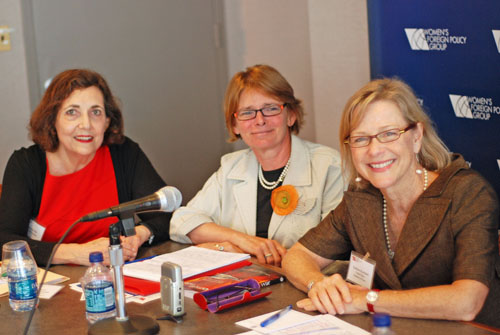 |
 |
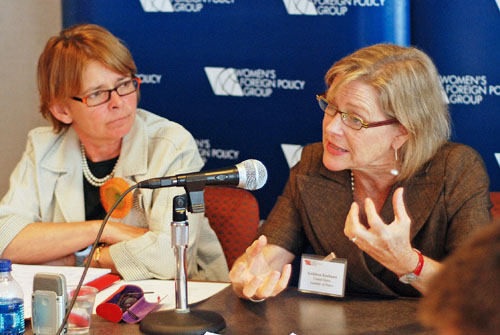 |
Speakers Chantal de Jonge Oudraat and
Kathleen Kuehnast with WFPG President Patricia Ellis
|
|
Chantal de Jonge Oudraat and Kathleen Kuehnast
|
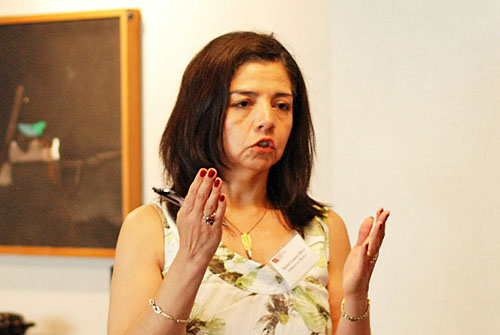 |
 |
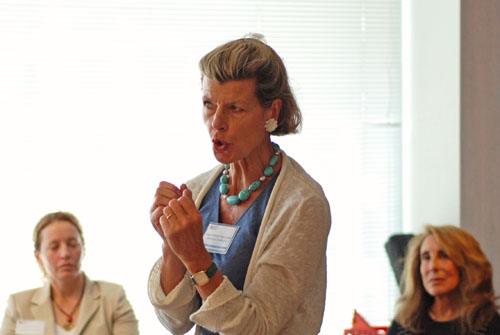 |
Mabel Gomez-Oliver, DCM of Mexico, asks a question
|
|
Board Member Diana Negroponte during the Q&A
|
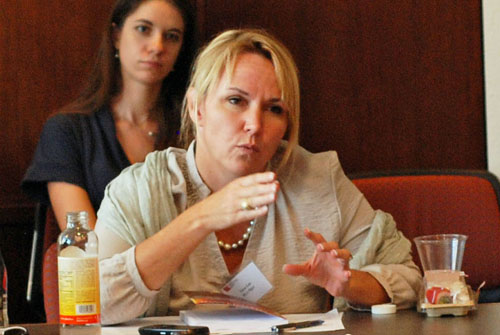 |
 |
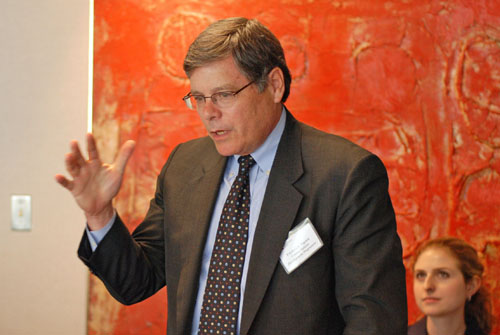 |
Corporate Advisory Council Member Tara Lee of DLA Piper
|
|
Director of UNDP Washington Office Frederick Tipson
|
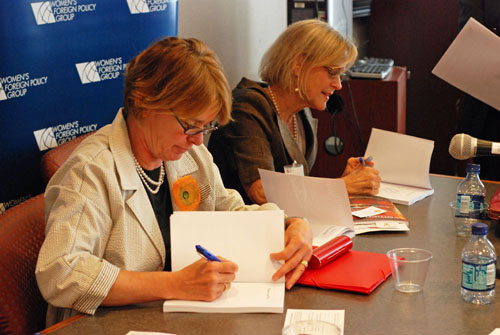 |
 |
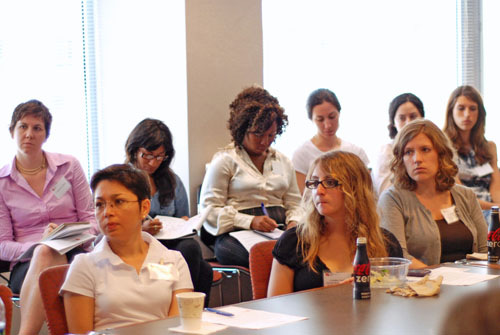 |